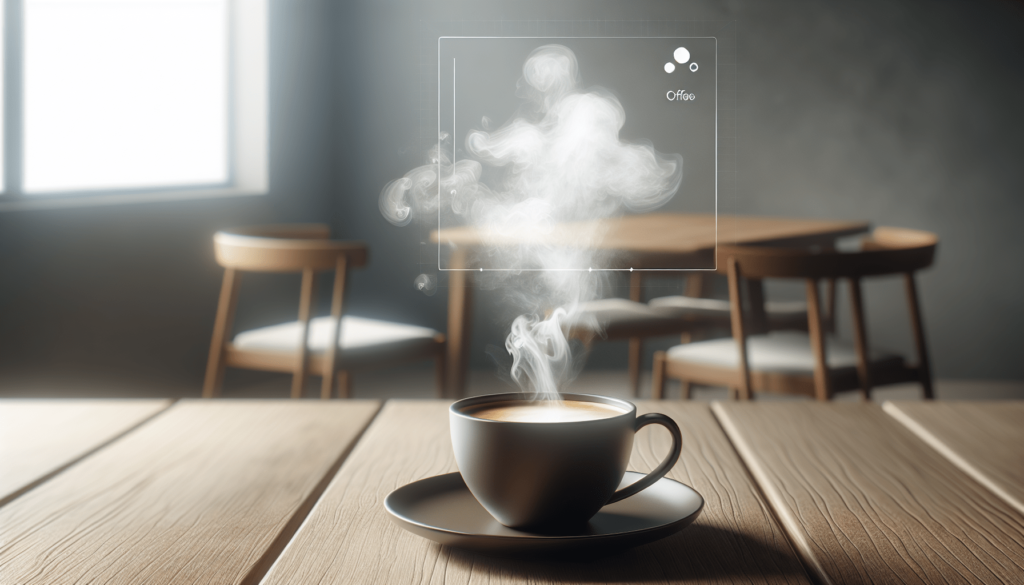Have you ever wondered how much coffee is healthy for a man’s daily routine? You’re definitely not alone. Coffee is one of the most popular beverages in the world and for good reason. It’s delicious, provides an energy boost, and has even been linked to various health benefits. But, like with most things, moderation is key. Let’s dive into the details of how much coffee you should be consuming daily to make the most of its benefits without overdoing it.

Benefits of Coffee
Before we talk about the limits, it’s important to recognize the numerous benefits that coffee offers.
Cognitive Enhancement
A primary reason many people reach for their morning cup is to kickstart their brain. Caffeine, the active ingredient in coffee, is a natural stimulant that increases attention, alertness, and overall cognitive function.
Physical Performance
Caffeine also affects your body by enhancing physical performance. By increasing adrenaline levels, drinking coffee can help prepare your body for physical exertion, making it a popular choice for athletes.
Antioxidant Properties
Did you know that coffee is packed with antioxidants? These compounds help neutralize harmful free radicals in your body, potentially reducing the risk of various chronic diseases.
Mood Improvement
Your mental health can benefit, too. The uplifting effects of caffeine can help alleviate symptoms of depression and improve mood.
How Much Coffee is Considered Healthy?
So, how much coffee should you actually be drinking? The consensus from health experts suggests that moderate coffee consumption is both safe and beneficial for most people.
General Guidelines
The ideal amount typically ranges from 3 to 5 cups per day. This translates to about 300-400 milligrams of caffeine daily.
| Coffee Amount | Caffeine Content (Approx.) |
|---|---|
| 1 Cup (8 oz) | 95 mg |
| 3 Cups | 285 mg |
| 5 Cups | 475 mg |
Individual Differences
It’s crucial to remember that everyone metabolizes caffeine differently. Factors such as age, weight, and even genetics play a role in how your body handles coffee. For some, 3 cups might be the sweet spot, while others may feel jittery with just one cup.
Health Risks of Excessive Coffee Consumption
While moderate coffee consumption has multiple health benefits, excessive intake can have downsides.
Cardiovascular Issues
High caffeine intake can lead to increased heart rates and blood pressure, which aren’t particularly good news for your cardiovascular health.
Insomnia and Sleep Disruptions
Drinking too much coffee, especially later in the day, can interfere with your sleep patterns. Lack of quality sleep can negatively affect your overall health.
Anxiety and Jitters
Ever felt those shaky hands after one cup too many? Excessive caffeine can heighten symptoms of anxiety and cause that jittery feeling.
Dependency
Relying too heavily on coffee can lead to caffeine dependency. This makes you feel tired and irritable if you miss your regular pick-me-up.
Special Considerations for Men
Certain factors can change how your body reacts to coffee, especially specific to men.
Prostate Health
Some studies suggest that high caffeine intake might be linked to adverse effects on prostate health. Moderation is crucial here to avoid potential risks.
Testosterone Levels
There’s ongoing research regarding caffeine’s impact on testosterone levels. Current findings indicate that moderate consumption doesn’t significantly affect hormone levels, but excessive intake could potentially have an impact.

Optimal Coffee Consumption Habits
Understanding how to incorporate coffee into your daily routine can help you enjoy it without the side effects.
Timing is Everything
Morning is generally the best time to consume your coffee. Drinking coffee too late in the day can interfere with sleep, so it’s best to avoid caffeine at least 6 hours before bed.
Quality Over Quantity
Investing in high-quality coffee can make a significant difference. Not only does it taste better, but it also tends to have fewer contaminants and more beneficial compounds.
Balance with Water
Staying hydrated is vital when consuming coffee. Ideally, for every cup of coffee you drink, you should also drink a glass of water to mitigate dehydration effects.
Ways to Enjoy Coffee Without Negative Side Effects
Being mindful of how you prepare your coffee can also influence how it impacts your health.
Avoid Sugary Additions
Many commercial coffee drinks are loaded with sugar, turning a healthful beverage into a high-calorie dessert. Opt for black coffee, or use natural sweeteners like honey or stevia.
Consider the Milk
If you add milk or cream to your coffee, think about the type you’re using. Plant-based milks or low-fat dairy options can help reduce calorie intake.
Portion Control
Larger coffee drinks, like those sold in many cafes, can contain significantly more caffeine than a standard cup. Be mindful of serving sizes to avoid unintentionally consuming too much.
Monitoring Your Caffeine Intake
Keeping track of your caffeine intake can be crucial for ensuring you don’t go overboard.
Caffeine Content in Common Foods and Beverages
Coffee isn’t the only source of caffeine. It’s also present in tea, sodas, chocolate, and even some medications. Here’s a quick overview:
| Item | Caffeine Content (Approximate) |
|---|---|
| Black Tea (8 oz) | 45 mg |
| Green Tea (8 oz) | 28 mg |
| Cola (12 oz) | 34 mg |
| Dark Chocolate (1 oz) | 20 mg |
| Energy Drinks (8 oz) | 70-100 mg |
Using Apps and Tools
There are various apps and online tools available that help you track your caffeine intake. Using these can assist you in managing your coffee consumption effectively.
Listening to Your Body
At the end of the day, it’s essential to listen to your body. If you start experiencing side effects like jitteriness, anxiety, or sleep disruptions, it might be a good idea to cut back on your coffee.
Signs You Might be Overdoing It
- Trouble sleeping
- Feeling anxious or jittery
- Increased heart rate
- Digestive issues
Coffee Alternatives
If you find that coffee just isn’t suiting your needs anymore, there are plenty of alternatives that can provide a similar pick-me-up without the downsides.
Herbal and Caffeine-Free Teas
Options like peppermint or chamomile tea can be soothing and provide a gentle energy lift.
Decaffeinated Coffee
If you enjoy the taste of coffee but not the caffeine, decaf is a great option.
Other Natural Stimulants
Try beverages like matcha or yerba mate, which contain caffeine but also other compounds that offer a balanced energy boost.
Conclusion
So, how much coffee is healthy for a man’s daily routine? For most people, 3 to 5 cups a day can be a beneficial and enjoyable part of your life. However, it’s essential to listen to your body and adjust your intake according to your individual needs and health conditions. By being mindful about how you prepare and consume your coffee, you can enjoy this amazing beverage without compromising your health. Cheers to your next cup!
